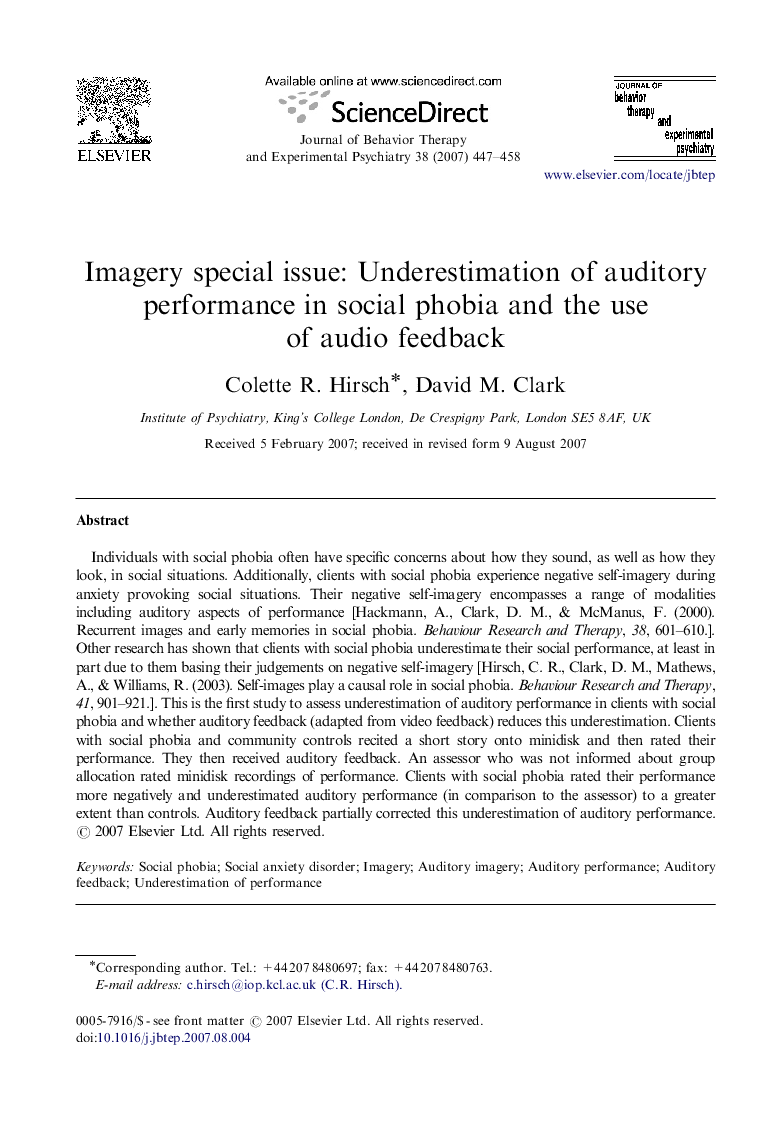| Article ID | Journal | Published Year | Pages | File Type |
|---|---|---|---|---|
| 10448344 | Journal of Behavior Therapy and Experimental Psychiatry | 2007 | 12 Pages |
Abstract
Individuals with social phobia often have specific concerns about how they sound, as well as how they look, in social situations. Additionally, clients with social phobia experience negative self-imagery during anxiety provoking social situations. Their negative self-imagery encompasses a range of modalities including auditory aspects of performance [Hackmann, A., Clark, D. M., & McManus, F. (2000). Recurrent images and early memories in social phobia. Behaviour Research and Therapy, 38, 601-610.]. Other research has shown that clients with social phobia underestimate their social performance, at least in part due to them basing their judgements on negative self-imagery [Hirsch, C. R., Clark, D. M., Mathews, A., & Williams, R. (2003). Self-images play a causal role in social phobia. Behaviour Research and Therapy, 41, 901-921.]. This is the first study to assess underestimation of auditory performance in clients with social phobia and whether auditory feedback (adapted from video feedback) reduces this underestimation. Clients with social phobia and community controls recited a short story onto minidisk and then rated their performance. They then received auditory feedback. An assessor who was not informed about group allocation rated minidisk recordings of performance. Clients with social phobia rated their performance more negatively and underestimated auditory performance (in comparison to the assessor) to a greater extent than controls. Auditory feedback partially corrected this underestimation of auditory performance.
Keywords
Related Topics
Health Sciences
Medicine and Dentistry
Psychiatry and Mental Health
Authors
Colette R. Hirsch, David M. Clark,
